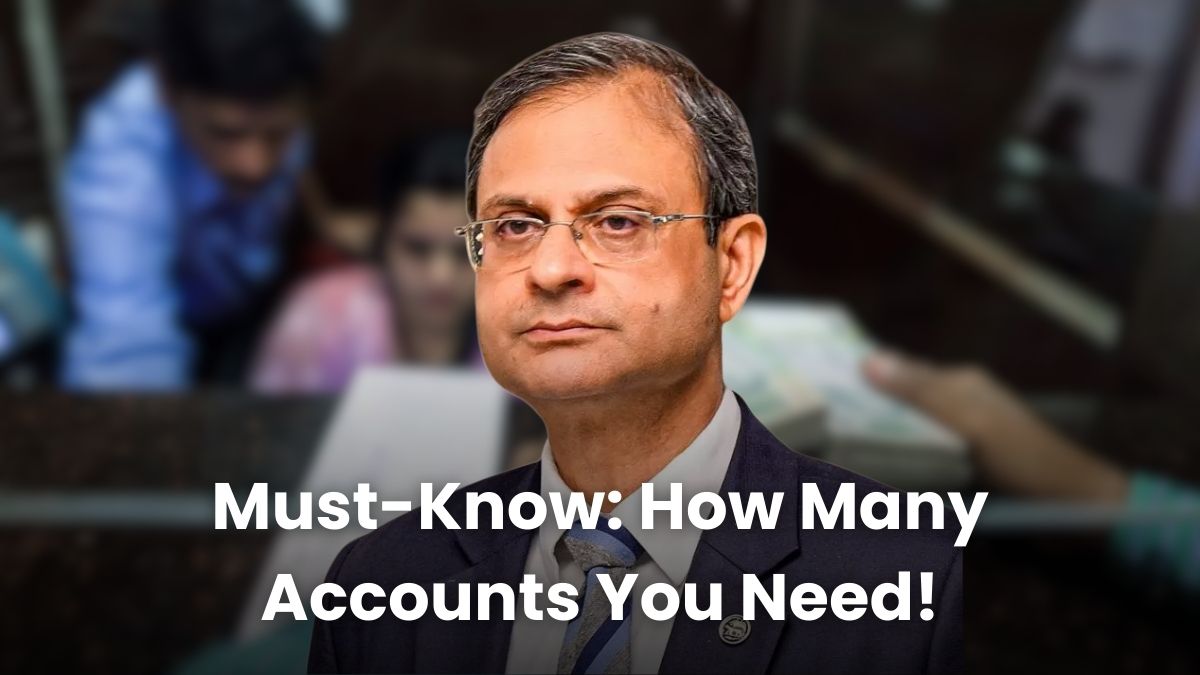Multiple Bank Accounts – In today’s fast-paced digital world, having multiple bank accounts might feel like a convenient way to manage your money. Maybe you have one for your salary, another for savings, and yet another for joint expenses. While this might seem efficient at first, the truth is that maintaining multiple accounts can come with a range of hidden costs that could quietly drain your wallet over time. From maintenance charges to penalties for falling below the minimum balance, banks benefit from your inattention. It might be time to take a step back and reconsider how many accounts you really need.
The Hidden Costs of Multiple Bank Accounts
While having several accounts may not seem harmful, it can easily lead to unexpected financial strain. Many banks charge fees that aren’t always obvious at first. These hidden charges can add up, costing you more than you realize. Some of the most common fees include:
- Minimum Balance Penalties: Most savings accounts require you to maintain a minimum average balance. If you don’t, you’re charged a penalty.
- Maintenance Charges: Many banks charge an annual fee for keeping an account open, regardless of how often you use it.
- Inactivity Fees: Accounts that aren’t used frequently can attract fees for being dormant.
- ATM Withdrawal Limits: Exceeding the free withdrawal limit can lead to additional fees.
- SMS Alert Charges: Many banks charge a small fee for sending SMS alerts about transactions.
- Cheque Book Fees: You may be charged for additional chequebooks beyond the initial free ones.
- Debit Card Renewal Fees: Some banks charge a yearly fee for renewing your debit card.
GST on Banking Services: Many of the service fees mentioned above are subject to Goods and Services Tax (GST).
Comparison of Charges Across Major Banks
It’s important to understand the specific fees each bank charges so that you can make an informed decision about your accounts. Here’s a breakdown of charges from some of the most popular banks:
| Bank Name | Min. Balance Requirement | Penalty for Shortfall | Annual Maintenance Fee | ATM Withdrawal Limit | Inactivity Fee | SMS Alert Charges | Debit Card Fee |
|---|---|---|---|---|---|---|---|
| HDFC Bank | ₹10,000 (Urban) | ₹300 – ₹600 | ₹150 – ₹750 | 5 free/month | ₹100/year | ₹15/quarter | ₹200/year |
| ICICI Bank | ₹10,000 (Urban) | ₹100 – ₹500 | ₹100 – ₹500 | 5 free/month | ₹100/year | ₹15/quarter | ₹200/year |
| SBI | ₹3,000 (Urban) | ₹10 – ₹50 | Nil (basic account) | 8 free/month | ₹100/year | ₹15/quarter | ₹125/year |
| Axis Bank | ₹12,000 (Urban) | ₹150 – ₹600 | ₹250 – ₹500 | 5 free/month | ₹100/year | ₹15/quarter | ₹300/year |
| Kotak Mahindra | ₹10,000 (Urban) | ₹100 – ₹500 | ₹250 – ₹750 | 5 free/month | ₹100/year | ₹15/quarter | ₹150/year |
| Bank of Baroda | ₹2,000 (Urban) | ₹50 – ₹200 | ₹150 – ₹400 | 3-5 free/month | ₹100/year | ₹15/quarter | ₹150/year |
| IDFC First Bank | Nil | Nil | ₹150 – ₹300 | Unlimited free | ₹100/year | ₹15/quarter | ₹150/year |
| Yes Bank | ₹10,000 (Urban) | ₹150 – ₹750 | ₹300 – ₹600 | 5 free/month | ₹100/year | ₹15/quarter | ₹250/year |
Risks of Keeping Dormant or Unused Accounts
One of the biggest risks of having multiple bank accounts is that you might forget to close those you no longer use. Here are some of the issues that arise from keeping dormant accounts open:
- Automatic Deductions: Even if you don’t use an account, banks often still charge you fees.
- Fraud Vulnerability: Less monitoring means the risk of fraud increases.
- KYC Non-compliance: Older accounts might not comply with newer Know Your Customer (KYC) regulations, leading to them being frozen.
- Credit Score Impact: If your accounts go into negative balance, it can negatively affect your credit score.
How to Decide Which Accounts to Keep
Choosing the right number of bank accounts is crucial for managing your finances efficiently. Here are a few tips to help you decide:
- Primary Salary Account: Keep at least one account for your salary that doesn’t require a minimum balance.
- Savings or Emergency Account: Consider keeping a high-interest account that doesn’t require a minimum balance.
- Joint Account (If Needed): If you need an account for shared expenses (like with a spouse), it can be helpful to have a joint account.
Ask yourself these questions about each account:
- Do I use this account regularly?
- Am I paying any fees for this account?
- Is this account offering any exclusive benefits?
Checklist to Simplify Your Banking
Here’s a simple checklist to help you streamline your banking and avoid unnecessary fees:
- Consolidate accounts that serve similar purposes.
- Maintain the minimum balance only in the accounts you need to keep.
- Use mobile banking or online banking apps to track all your transactions.
- Close any unused accounts properly by submitting a formal closure request.
- Always get a confirmation of account closure in writing or via SMS.
- Cancel any linked automatic payments or debits before closing an account.
- Redeem any reward points or benefits from the account before closing it.
- Make sure to transfer balances and update your linked services, such as UPI, PF, and tax records.
How to Close a Bank Account Properly
Closing a bank account might seem like a hassle, but it’s actually a straightforward process:
Also Read:
 Jio Recharge Plan: Jio Launches a Budget-Friendly 2-Month Plan with Unlimited Calls & Data
Jio Recharge Plan: Jio Launches a Budget-Friendly 2-Month Plan with Unlimited Calls & Data
- Visit your bank branch with your ID proof.
- Request an account closure form and fill it out.
- Return your cheque book, debit card, and passbook.
- Clear any pending dues or charges.
- Request a confirmation SMS or letter acknowledging the closure.
Many banks also offer the option to close accounts online, so check if that’s available for your bank.
Benefits of Reducing to 1-2 Active Accounts
Simplifying your banking by keeping only the essential accounts offers several benefits:
- Lower Fees: Fewer accounts means fewer maintenance charges and penalties.
- Easier Tracking: Managing fewer accounts makes budgeting and tracking your money easier.
- Better KYC Compliance: Fewer accounts reduce the risk of non-compliance with KYC regulations.
- Reduced Fraud Risk: With fewer accounts to monitor, you can be more alert to any fraudulent activity.
- More Control Over Your Finances: You’ll have a clearer view of your finances when you don’t spread them across too many accounts.
Having too many bank accounts might seem like a good idea initially, but it can slowly chip away at your finances with hidden fees. By reviewing your accounts, closing the ones you don’t need, and consolidating your finances into one or two active accounts, you can avoid unnecessary charges and have better control over your money. Start today and take charge of your banking life. The fewer accounts you manage, the more money you’ll save.



